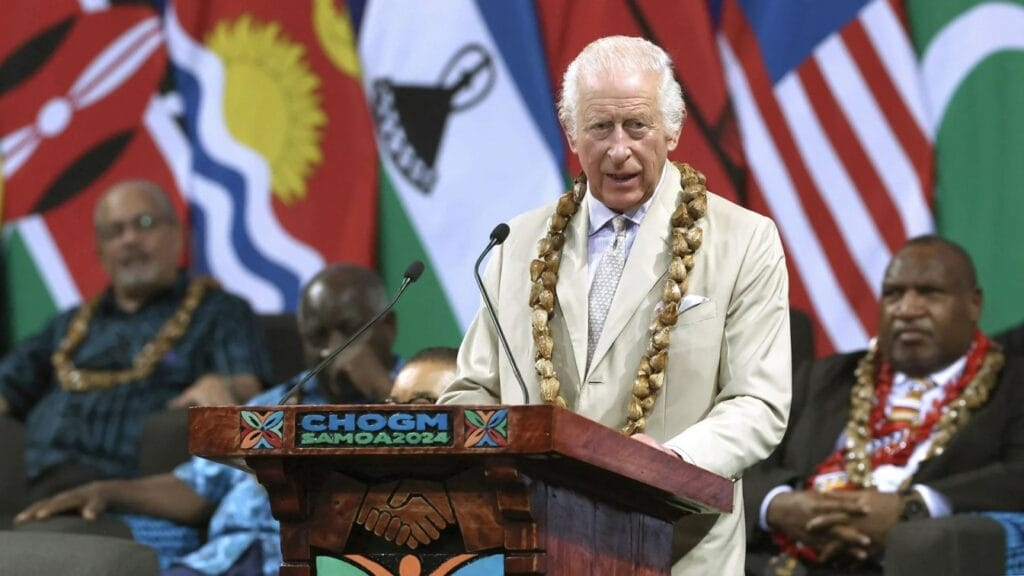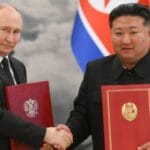Britain’s King Charles has called on the Commonwealth to look at its painful past and specifically to redress inequalities and injustices from yesteryear while speaking at the Commonwealth Heads of Government Meeting (CHOGM) in Samoa. The biennial forum brings leaders, diplomats, and other dignitaries together from the Commonwealth’s 56 member nations to discuss issues from climate change to global economic opportunities for young people.

In his first speech as head of the Commonwealth, King Charles spoke to the point of looking right in its face. “I hear from people across the Commonwealth how the most painful aspects of our past continue to resonate,” he said, for he knows that to progress and move onward they must know how to progress and move onward. He made it clear that the Commonwealth should stand for unity, kindness, and understanding, rejecting the language of division.
Of course, Charles did not refer directly to reparations for slavery, but he touched on it by saying, “None of us can change the past, but we can commit with all our hearts to learning its lessons and to finding creative ways to right inequalities that endure.” Given the role of the British monarchy in the country’s colonial and historical past, those words resonated to some but must have been underwhelming to others holding tight to the expectation of a strong stance regarding reparations. Personally, I believe speeches are necessary but by themselves insufficient. Real actions in the form of concrete steps toward economic and social reparations would have had a longer-lasting impact.
For some history, the BBC reports that leaders of the Commonwealth are writing a statement that will appropriately meet these issues through a “meaningful, truthful and respectful conversation.” However, there are shades to this. Words of apology and reconciliation are a necessary step, but the action is different from acknowledging. Saying remorse is said without concrete commitments sometimes sounds half-hearted. If King Charles is serious about change, perhaps he would have to urge greater reforms, perhaps policies that would have such-and-such direct effects on economies and societies that had been robbed by colonialism.
One of the big questions here is whether these talks will lead to real change or if they’ll just be words on paper. History shows that diplomatic language has its limits, and I think, as King Charles hints, there’s a need for real community-building and respect within the Commonwealth, but that has to include equitable economic relationships. Similarly, the other concerns in the agenda item of the meeting range from youth opportunities and climate change, but two all have robust links to colonialism and inequality that remain live today. For example, there are reasons why those countries that are most “climate-vulnerable” around the world tend to be the poorest members of the Commonwealth; these also, ironically, tend to be the places in the world where human beings have done least over the centuries to precipitate the climate crisis.
What the Commonwealth needs to succeed is to correct these power plays. Meanwhile, let me discuss another comparison about international relationships that seem to be in a crisis. Take, for instance, the diplomatic crisis between Canada and India under the current Prime Minister Justin Trudeau. His strategy has created stress and tension I believe are counterproductive and, franking reckless. Cutting off ties with an important player like India not only isolates Canada but weakens the Commonwealth’s potential as a united front.
Closing lines King Charles’s speech points towards the long-overdue reconciliation in the Commonwealth; however, whether this will come with any meaningful action is yet to be known. The Commonwealth needs to talk less and invest more in meaningful, actional steps to creating value for every member of the organization, with particular emphasis on those who have borne the brunt of inequality.
Minutes by M31GlobalNews






